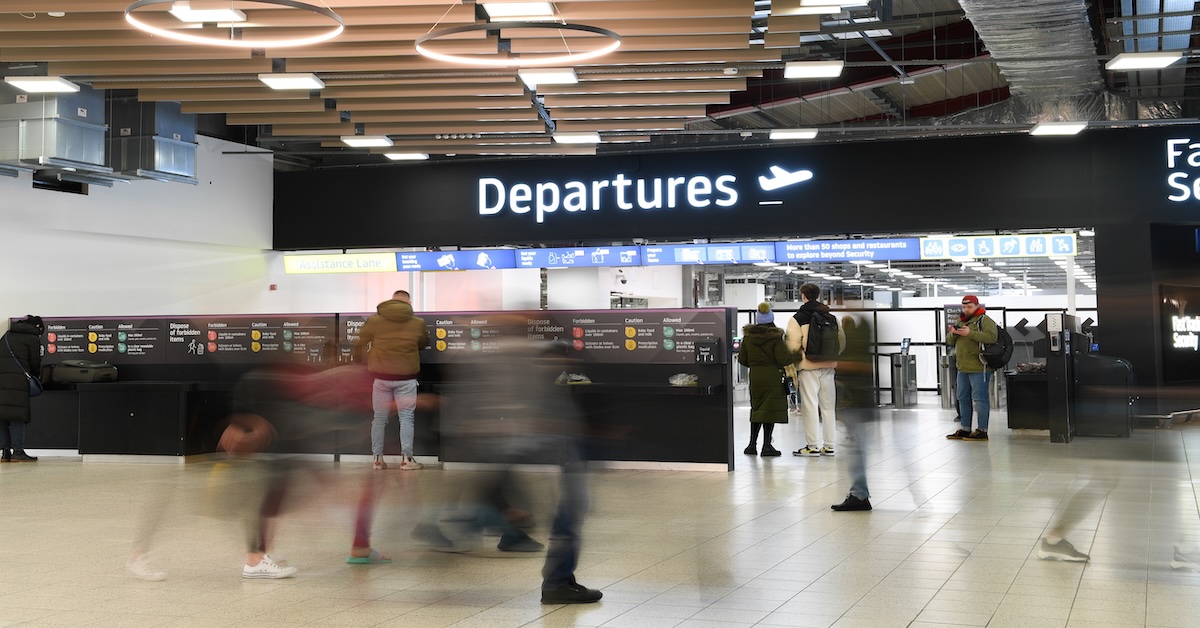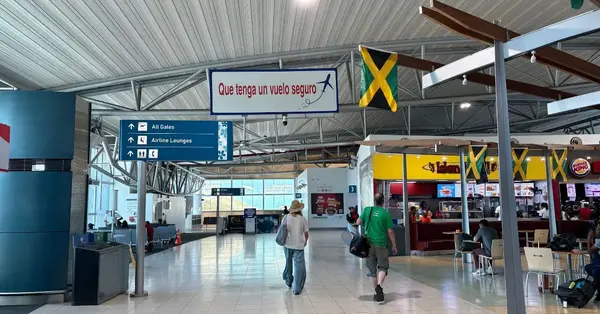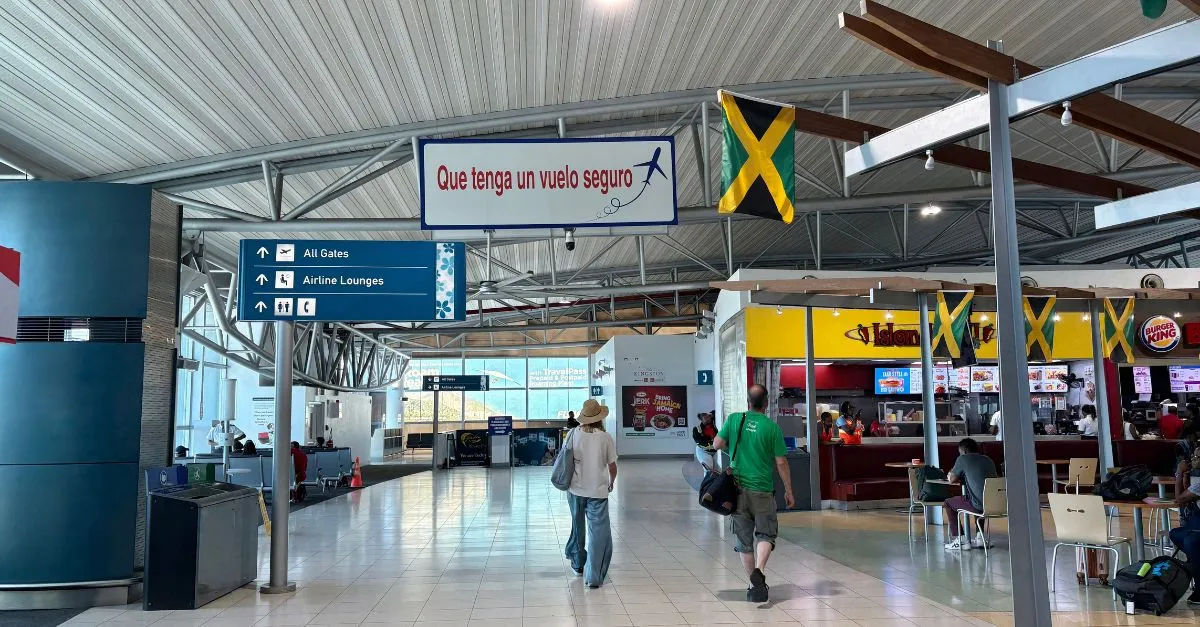You are viewing 1 of your 2 free articles
Ryanair boss slammed by travel trade for ‘illegal’ comments
Travel agents have hit out at Ryanair boss Michael O’Leary after he told ITV’s flagship breakfast show that booking via third parties on the airline’s website is “illegal”.
O’Leary appeared on Good Morning Britain today to answer questions about the restart of international travel but was pressed on claims by the Irish Travel Agents Association (ITAA), reported by Travel Weekly last month, that the carrier owes its customers €20 million in refunds for flights affected by Covid-19.
He repeated Ryanair’s long-standing stance that it doesn’t recognise third party travel agents – despite its fares being available on global distribution systems (GDSs).
O’Leary’s claims that it is “illegal” for third parties to book via its website have since been countered by leading industry law firm Travlaw whose senior partner Matt Gatenby said: “It is certainly not illegal” (see full legal opinion below).
Comment: It’s about time travel agents stood up to Ryanair
Row over travel agents’ role as Ryanair refunds row snowballs
It follows a row that flared up last month, in which the ITAA called the airline “disingenuous” for its stance on agents.
O’Leary insisted: “We don’t have any bookings from Irish travel agents. People are supposed to only book on Ryanair directly. We have refunded all of those customers.”
Pressed on the claims by the Irish Travel Agents Association, he said: “It’s illegal for them to make bookings on our website. We don’t allow third parties to make bookings. That’s one of the great challenges the airlines have faced in recent years.”
O’Leary’s comment were directed both at bricks and mortar travel agencies and ‘screenscraper’ websites, though he only specifically named one, online travel agency On the Beach.
He repeated Ryanair’s accusations that third parties “overcharge” Ryanair customers, and provide “fake contact details and fake payment details”.
“We have refunded all of the people who have applied to us directly for refunds, whether cash refunds or vouchers,” he said, adding: “We are not allowed by regulators, or by law, to give a customer’s refund to a third party intermediary, whether it’s an Irish travel agent or it’s an online screen scraper.”
However, when pushed on whether customers who book through are third party are entitled to a refund, he said: “No, you are. Absolutely. You are entitled to a refund as long as we can reach you. We have a tiny number, literally hundreds, of people who are still there who haven’t applied to us directly for the refund as the consumer and we’re not able to refund them until they apply directly to us.”
He insisted: “Don’t book through travel agents, book directly with your airline.”
The ITTA has previously stressed that Ryanair’s fares are available on GDS (global distribution systems), which provide a range of fares to travel agents from multiple airlines – and pointed out that any additional charges for their services are made clear.
Chief executive Pat Dawson said the ITAA was “taken aback” at O’Leary’s latest comments. A spokesperson explained that travel agents use either their company email address or the clients email address to ensure clients are updated of time changes and safety messages such as for Covid-19.
Dawson added: “The Ryanair website is a public domain where anyone can make a direct booking and look up the price of the flight; travel agents do not conceal flight costs from customers. Nor do they overcharge customers with hidden fees or add-ons. Any service fees or handling charges are clearly communicated with the customer, and we are disappointed by the insinuations made today, as we have the highest respect for our customers.”
Individual agents hit out on trade social media sites such as Travel Gossip, saying that Ryanair only refuses to accept the role of travel agents when their customers request refunds – not when they’re making bookings.
Some used the hashtag #boycottRyanair and vowed not to book Ryanair flights in the future. Others criticised O’Leary’s use of the word illegal.
Nicki Bowlden, a Not Just Travel franchisee, launched a petition calling on the UK government to step in to ensure customers booked on Ryanair flights via travel agents receive refunds.
She said groups and school trips booked through travel agents were among those to have booked via travel agents.
“They [Ryanair] were happy to take millions of pounds in bookings from agents – but not prepared to refund the agents to refund the customer,” said Bowden. “Please do not book Ryanair until they do the right thing.”
Matt Gatenby, senior partner at leading industry law firm Travlaw, said: “It is certainly not illegal, in a criminal sense, for a third party, such as a travel agent, travel management company or tour operator, to use Ryanair’s website to make bookings on behalf of consumers and for monies to be taken in, and refunded via that path. Ryanair do, however, argue that it would be a breach of their terms and conditions for third parties to do so.”
He added: “The only reason for Ryanair now targeting bookings made with travel agents and tour operators, is because of the increased and unforeseen pressure to make refunds.”
Following O’Leary’s comments, Travel Weekly approached Travlaw for an expert legal view. Here is senior partner Matt Gatenby’s legal opinion in full:
“It is certainly not illegal, in a criminal sense, for a third party, such as a travel agent, travel management company or tour operator, to use Ryanair’s website to make bookings on behalf of consumers and for monies to be taken in, and refunded via that path.
“Ryanair do, however, argue that it would be a breach of their Terms & Conditions for third parties to do so.
“Similarly, on the face of it, Ryanair’s terms and conditions prevent bookings being made by third parties on behalf of a traveller.
“That may well be justifiable in order to prevent ‘screenscraping’, which is a practice tantamount to ‘ticket touts’ buying up all the tickets for an event and then selling them on at a premium.
“However, Ryanair appears to now be enforcing these terms in order to challenge travel businesses who will say that they have a perfectly legitimate reason for doing so – whether by providing a service on behalf of travellers such as an agent or travel management company, or by compiling a number of travel services as a tour operator.
“Ryanair’s attempt to enforce their legal position in these cases more recently has certainly been contentious in the eyes of many in the travel and leisure industry, although I am not aware of any ongoing legal challenges in the courts.”
Gatenby said Ryanair for many years has been aware and permitted the practice of corporate credit cards being used to make multiple bookings where the contact details would be identical for different customers.
He said the industry believes the carrier has ‘turned a blind eye’ to this because the real objective of its terms are to prevent ‘scraping’ by opportunists rather than legitimate travel agent and tour operators. Also because travel agents and tour operators drive a substantial number of bookings to Ryanair;
It is now felt that Ryanair is trying to impose its terms and conditions on third parties because of the “increased and unforeseen pressure to make refunds”.
The challenge for third parties posed by Ryanair’s direct refunds policy is it requires them to provide the budget carrier with customers’ personal details to verify ID and many have refunded the customer under package travel law obligations or to offer customer service.
“The travel businesses therefore face a substantial administrative burden to try and secure all of the information requested by Ryanair, compounded by the fact that the traveller has no real incentive to co-operate as they have already received monies back.”


















